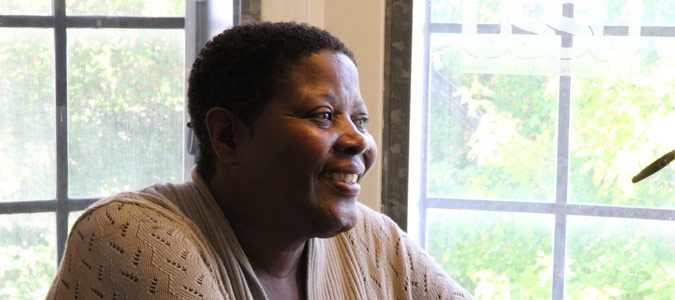Creating opportunities for Ethiopian exchanges
A unique partnership between the U of S and an African university has created the opportunity for students to study issues of food security, nutrition and community health in Ethiopia.
By Colleen MacPherson Backed with $97,000 over three years from the Association of Universities and Colleges of Canada (AUCC) Students for Development project, the U of S Colleges of Pharmacy and Nutrition, Nursing and Agriculture and Bioresources have teamed up to create a student exchange program with Hawassa University (HU) in Hawassa, Ethiopia.
Backed with $97,000 over three years from the Association of Universities and Colleges of Canada (AUCC) Students for Development project, the U of S Colleges of Pharmacy and Nutrition, Nursing and Agriculture and Bioresources have teamed up to create a student exchange program with Hawassa University (HU) in Hawassa, Ethiopia.
"The College of Agriculture and Bioresources has had a partnership with Hawassa University since 1997," explained Carol Henry, project lead and associate professor in the College of Pharmacy and Nutrition. "A few years ago we got together to see what opportunities existed to expand this collaboration and how our students could work together. We decided that community development issues like nutrition, health and agriculture needed to be addressed."
So the group submitted an application to the AUCC to fund an exchange program between the two universities. "The AUCC funding is going towards setting up a new interdisciplinary exchange program that will send five U of S students to Ethiopia and bring three students from Hawassa here. This provides great learning opportunities for our students and also addresses these critical issues from a number of disciplines."
The students, explained Henry, will work on research projects that contribute to food security, the results of which will be spread through publications and workshops. "The major benefit of this program is that students will get to learn and research together and develop international relationships. But even more important is that issues of food security, nutrition and health will be addressed in a developing country, and this will build capacity to deal with these issues in the future by training Ethiopian students."
The program will build upon previous funding from the Canadian International Development Agency (CIDA). "CIDA funded the U of S and HU partnership with $1 million towards the creation of a joint PhD program in agriculture science and the development of the masters in applied human nutrition (MAHN)," she said.
That initial investment is starting to pay off, explained Henry, pointing to a student from HU who completed the MAHN program and is now coming to the U of S to pursue a PhD this fall.
"All people, at all times, should have access to safe, affordable and nutritious food," said Henry of the World Health Organization's definition of food security. "That is what this project strives to accomplish. We are training young researchers to build capacity for the future."

